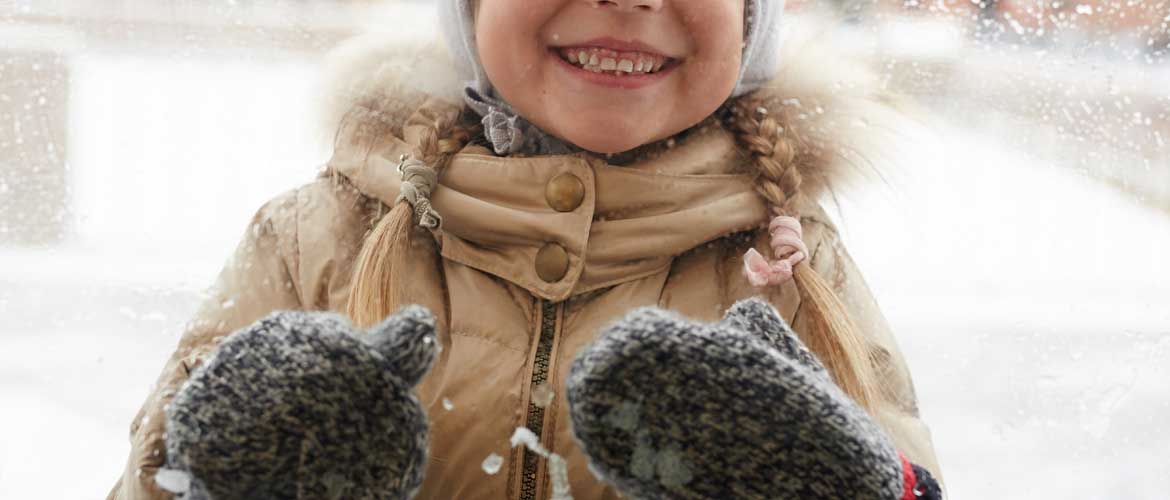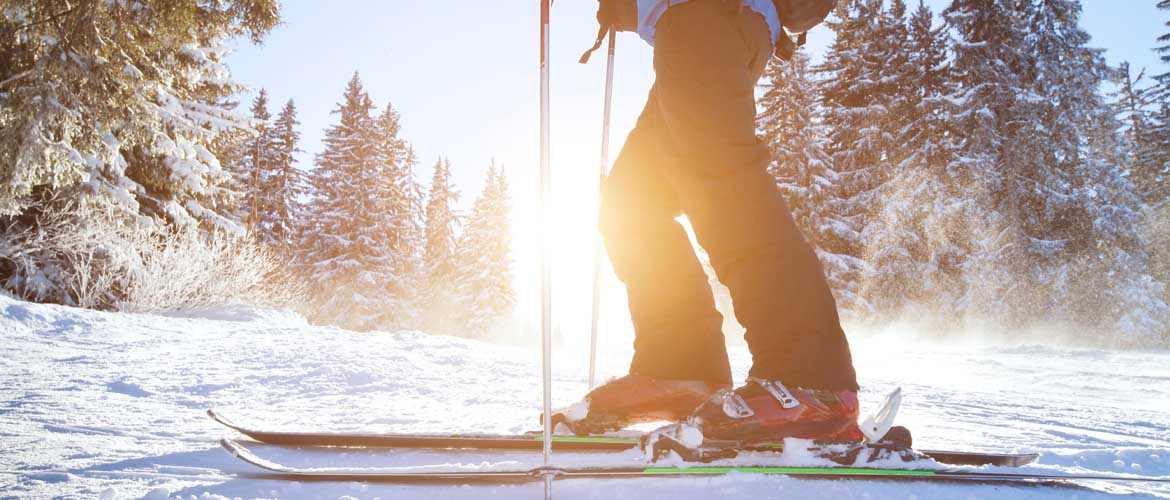January 29, 2018
We're tackling some of the most common winter skin ailments and offering tips on how you can protect your skin from the elements.
As the temperatures drop outside, so do humidity levels in the air. When the air around you is cold and dry, it causes the moisture in your skin to evaporate faster than it normally would. Many of us (except those lucky Floridians and other southern natives) spend the winter months inside with the heat turned up − drying out more than just our skin. Cozy, indoor heat can also dry out mucous membranes in the mouth, leading to chapped lips.

Jack Frost Nipping at Your Nose
Categorized as an injury, frostbite occurs when parts of your body are exposed to the cold for prolonged periods of time. With frostbite, it’s not so much the cold, but rather how your body reacts to the cold. Typically, your blood carries oxygen to all parts of the body. When your body is exposed to extreme cold, your blood vessels constrict and blood and oxygen are redirected to your vital organs to keep you alive. This means less blood and oxygen are flowing to your extremities. This exposure to the cold, and lack of blood supply and oxygen, causes your skin and the underlying tissue to freeze. Outer extremities like your fingers, toes, and feet are most affected.
If promptly treated, most frostbite cases don’t result in permanent damage. However, severe cases can lead to amputation. The best way to prevent frostbite is to limit exposure to cold weather. If you’re planning on spending all day out in the snow, make sure you dress properly for the elements and activities you’ll be doing.
MedExpress Pro Tip: When it comes to your protecting your hands, choose mittens. They provide better protection than gloves and tend to be warmer because your fingers produce more heat when they’re together, rather than separated by fabric, as they are with gloves.

On a Mountain in the Sun
We’ll be playing and having fun. Okay, pause the Weezer. I know what you’re thinking – is sunburn in winter even possible? The answer is yes. Even though those winter clouds look like they’re blocking out all the sunlight, 80 percent of the sun’s rays can still penetrate through the clouds.
And if you’re a skier, you’re even more at risk for increased UV exposure. For every thousand feet you rise above sea level, UV radiation increases by 5 percent, in addition to the reflection from the snow, according to the Skin Cancer Foundation.
Before you hit the slopes, apply SPF 30 sunscreen 30 minutes in advance. When choosing a sunscreen, look for one with moisturizing ingredients like lanolin or glycerin to help combat the harsh winter conditions.
MedExpress Pro Tip: Don’t forget your lips! The delicate skin on your lips can become sunburnt, too. Wear a lip balm with an SPF of at least 15.

Chapped Lips Sink Ships
Itching, burning, red, and peeling lips – there are few things worse! Like other parts of our skin, our lips are more susceptible to becoming dried out in the winter because there is less moisture in the air. And you may think that licking them will help, but you’re actually causing more harm than good. To prevent and treat chapped lips, you’ll need to give them some TLC.
To start, gently exfoliate your lips to get rid of dead skin cells. Then, apply lip balm to lock in moisture. Look for a lip balm with a nourishing base, like shea butter or beeswax. If possible, find a lip balm that also has SPF in it.
MedExpress Pro Tip: In a pinch and don’t have lip balm? Look no further than your kitchen cabinets. Coconut oil, honey, and ghee are all effective moisturizers for chapped lips.
